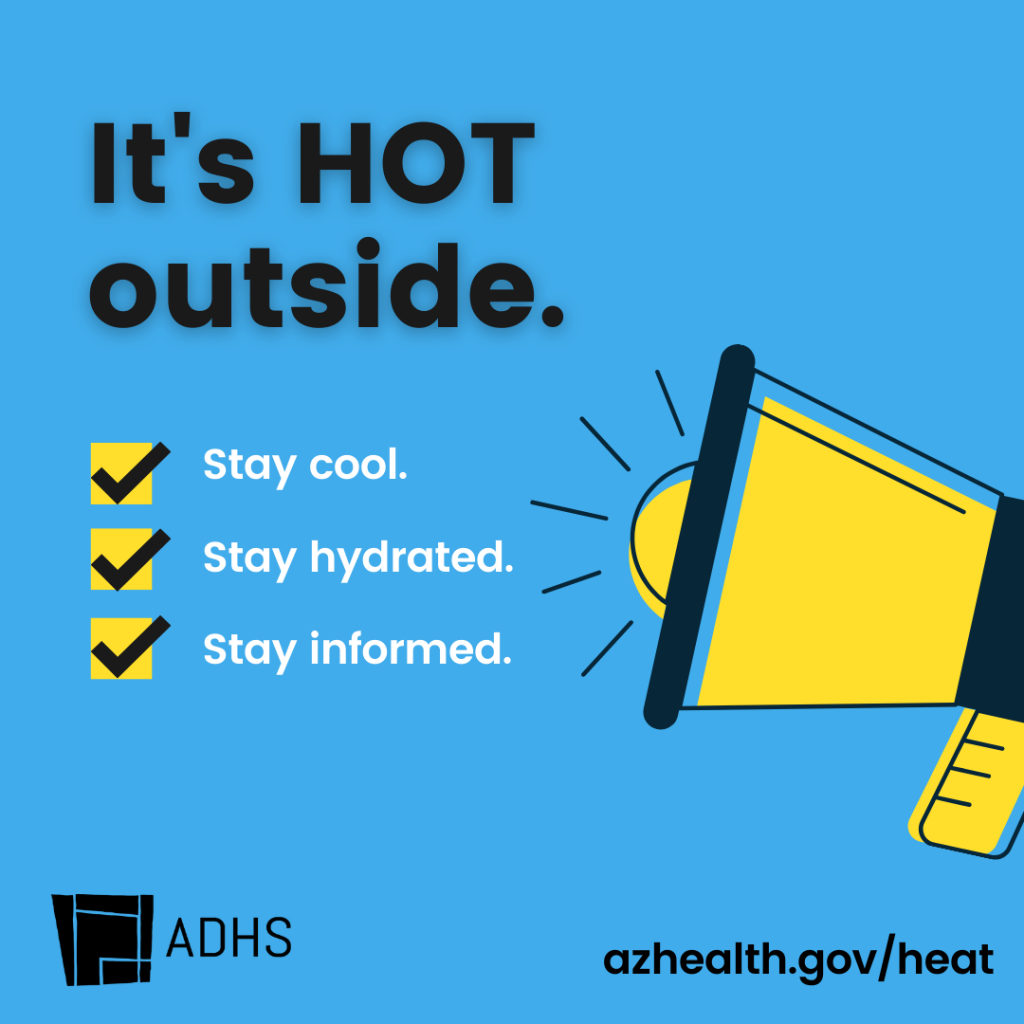 Heat can become a serious health issue when the temperature soars – as it’s doing this week. Please look out for yourself and others to prevent heat exhaustion and heat stroke.
Heat can become a serious health issue when the temperature soars – as it’s doing this week. Please look out for yourself and others to prevent heat exhaustion and heat stroke.
Anyone can fall victim to heat-related illness, but the list of those who are most susceptible includes those 65 and older, infants and young children, people who work or exercise outdoors, and those with chronic medical conditions.
Extreme heat is especially dangerous to those without access to air conditioning, including those who are homeless. Maricopa County offers an interactive map of available cooling centers and places where you can donate bottled water to help those in need. The Tucson Pima Collaboration to End Homelessness also publishes a list of summer cooling stations.
If you don’t take precautions, your body’s natural response to heat through sweating can be overwhelmed. That’s why ADHS offers a comprehensive website explaining how to prevent, recognize, and treat heat-related illness. It includes toolkits for older adults, outdoor workers, and schools.
According to preliminary data, Arizona had 520 heat-related deaths and 2,414 emergency department visits for heat-related illness last year.
The safest place to be when temperatures soar is an air-conditioned space, and the safest option is limiting outdoor activities to early morning hours. Of course, that isn’t possible for everyone. So please follow these tips to stay cool, stay hydrated, and stay informed:
- Drink plenty of water: Hydrate before, during, and after outdoor activities
- Dress for the heat: Lightweight, light-colored clothing, and a wide-brimmed hat will keep you cooler. Use a sunscreen of SPF 15 or higher.
- Keep tabs on those at higher risk: Check on your family, friends, and neighbors.
- Go easy on yourself: Take regular breaks from physical activity in the heat, and avoid physical exertion during the hottest hours.
- Check the weather forecast: Stay informed of Excessive Heat Warnings.
Thirst and heat cramps are signs that you’re already being affected by heat. Get cool and hydrate if you experience either or both. If you don’t, heat-related illness can progress to heat exhaustion and then heat stroke, which can be fatal.
Please be safe this week by following the steps needed to protect yourself and others.









